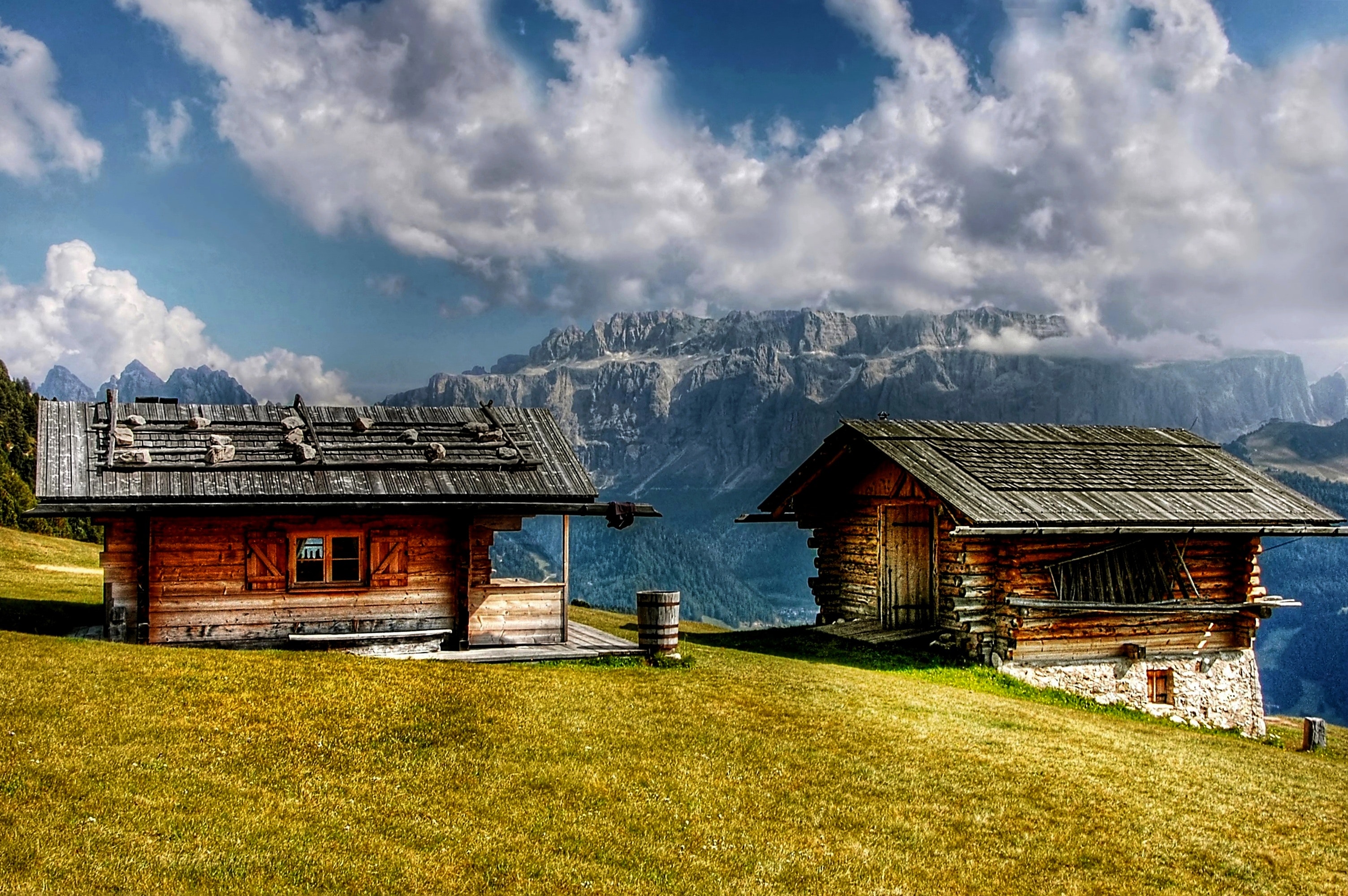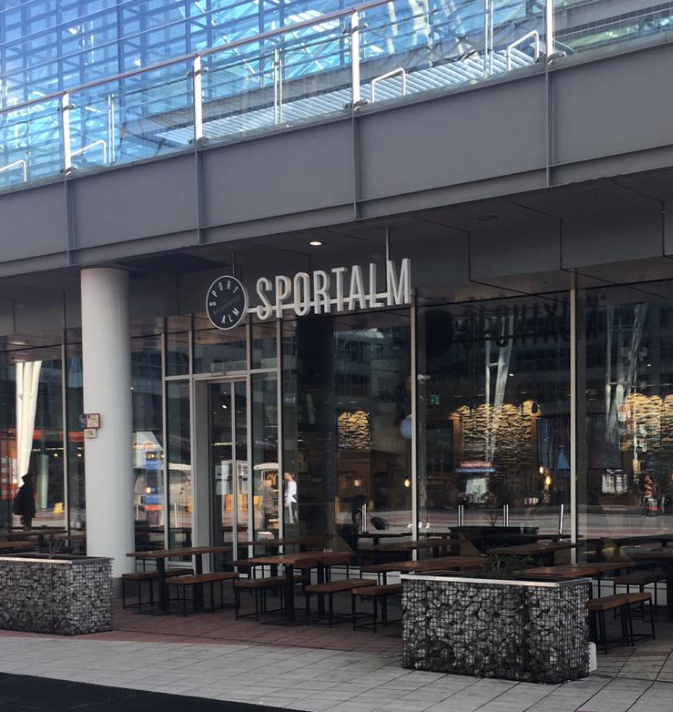
The untranslatable Alm
By Kristin Fehlauer
My sister and her family were over from the United States visiting me recently here in Munich. Every time I have visitors, they always manage to ask me a question that, annoyingly, I have no ready answer for, and this visit was no exception. We had all gone to lunch at a lovely small beer garden, tucked out of the way on the border of a community garden and the wooded park alongside the river. That river, the Isar, gives our chosen lunch venue part of its name: Isar Alm.
By this point, my sister had gone past another establishment close to my house, Giesinger Alm, several times. From the outside, Giesinger Alm is quite different from Isar Alm. It’s on a fairly busy city street and has only a few tables on the sidewalk. I’ve never penetrated the interior of Giesinger Alm, murky despite a brave attempt at brightening with those lacy white half-window curtains, but it seems to draw a mostly older crowd of smokers.
So my sister—who like me is a native English speaker—asked, what does “Alm” mean? These two places have to have something in common if that’s in both their names, right? Does it just indicate an eatery? A reasonable question I was at a loss to answer. Here in Upper Bavaria, I’ve come across the word many times and always vaguely understood it to refer to a hut, often in the mountains, where you could get food, drink, and maybe even a bed for the night.
Alm, feminine singular; die Almen, plural. A mountain pasture, particularly in the Alps, and specifically one used for pasturing cattle in the summer months. From Middle High German alben, a declined form of albe, a pre-Roman word for a (high) mountain.
It seems I was mistaken, however, as the official definition refers to the pasture, not the buildings. So then why do these two locales call themselves “Alm,” when there is no alpine pasture nearby? Further examples include Käse-Alm (a cheese shop) just down the road from my apartment and Sportalm (a restaurant) at the airport. What’s the reasoning behind these names?

Perhaps the answer is a simple one: marketing. Alpine pastures—the original Almen—are home to grazing animals in the warm months, and so they often have buildings connected to these operations, and sometimes those buildings welcome visitors—usually hikers looking for a place to rest their legs and enjoy a bit of refreshment.
As a result, calling your restaurant an “Alm” is connecting it to those buildings, thus evoking breathtaking views over the peaks of the Alps, the sun warm on wildflowers scattered across a grassy meadow. But with so much packed into this word, translating it can prove quite a challenge. It’s not always possible to just leave it and expect people to understand it, and we don’t generally translate proper names of restaurants. But what about a sentence like this one we had recently:
Die moderne, urbane Alm wird zu Fuß mit einer ca. 45-minütigen Wanderung erreicht.
Which, literally translated, reads “The modern, urban Alm can be reached on foot with a roughly 45-minute hike.”
So which Alm is meant here? It’s clearly referring to something that can be described as modern and urban, so probably not the meadow (although that sounds like a cool idea for some futuristic concept art). They must mean the place-in-an-alpine-meadow-where-hikers-can-stop-to-rest-and-have-some-refreshment. Ok, let’s work with that. But English doesn’t have a word that neatly encapsulates all those features. A restaurant is unlikely to be located in the mountains, at least one that expects its diners to arrive on foot; a pub, similar; a hut sounds like an uninsulated shack that provides a modicum of shelter and nothing more.
We solved it by moving away from the one-to-one approach I applied above, writing instead:
A 45-minute hike will take you to the urban-style Umbrüggler Alm, a modern take on an alpine hut.
Instead of trying to find that one elusive word that could convey as much as the original, we chose to sprinkle some of the elements of “place-in-an-alpine-meadow-where-hikers-can-stop-to-rest-and-have-some-refreshment” throughout the sentence.
Bemoaning the lack of an English word that perfectly matches a German one is nothing new. But I would argue that 99% of the time, a word is not “untranslatable” so much as it is not “efficiently translatable.” Any word or concept can be explained, but frequently there is simply not enough room to do so adequately—whether it is a question of the actual space allotted for the text, or whether a proper explanation would draw too much attention to itself and distract the reader.
Perhaps the next time you encounter a word that someone claims “can’t be translated” and then proceeds to explain it, ask yourself if maybe there is a better word for that than “untranslatable”!


